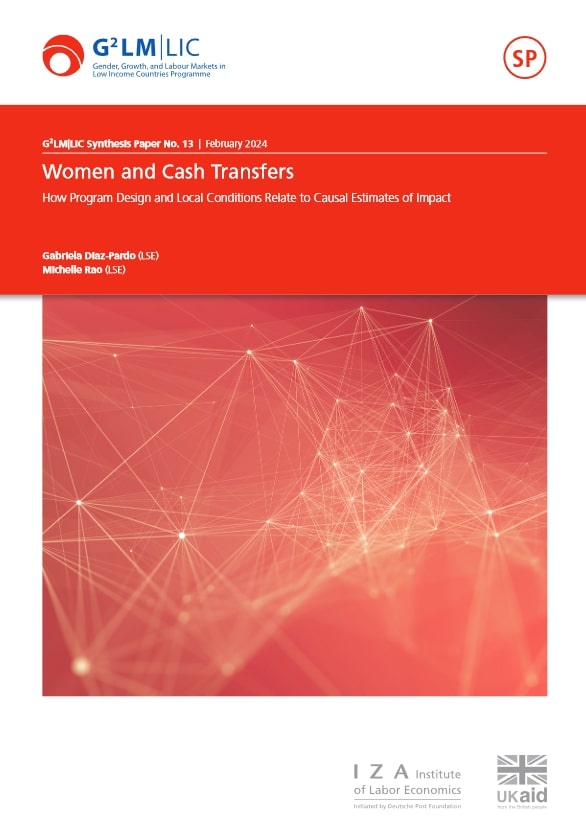In this paper, we conduct a systematic review of the literature on the impact of cash transfers on women’s employment and empowerment. We construct a dataset of 265 impacts of cash transfers on adult women across 56 studies and 30 programs in Lower and Middle-income countries. Our dataset is the first that matches estimated treatment effects with harmonised information on the design of cash transfer programs, including the transfer size, payment methods and frequencies, and program conditionalities. Across studies, we find that cash transfers have a positive and insignificant impact on women’s employment and empowerment. We use our data to explore how the impact of cash transfers differs by program design features and baseline country conditions, including local labor market structures and gender social norms. We find that cash transfers have a larger impact on women’s labor force participation when they are larger in size, and when there is a higher proportion of women who work in formal employment before the program evaluation. Overall, our results suggest that cash transfers have more meaningful impacts on women’s employment and empowerment when pre-existing gender constraints are low. Our findings highlight the importance of interpreting estimated program impacts in the context of country-level conditions and program design.

Women and Cash Transfers
How Program Design and Local Conditions Relate to Causal Estimates of Impact
- Gabriela Diaz-Pardo
- Michelle Rao